Professor Francesco P Cappuccio
MBBS, MD, MSc (Epid), DSc, DLSHTM, FRCP, FFPH, FBIHS, FAOP, FESC, FAHA
Cephalon Professor of Cardiovascular Medicine & Epidemiology
Honorary Consultant Cardiovascular Physician
Head, World Health Organization Collaborating Centre for Nutrition
Director, European Centre of Excellence in Hypertension and Cardio-Metabolic ResearchPast-President, British and Irish Hypertension Society
Tel: +44 (0)24 7657 3129Academic Office | Tel: +44 (0)2476 574530 / 523543
Researcher ID: D-3028-2009ORCID-ID: 0000-0002-7842-5493
Listed as world-leading researcher on Stanford University's global listing
Listed in the fist 100 Top Italian Scientists on the global listing
Symplectic Profile
Profile
|
Franco moved to Warwick in July 2005 to take up the newly established Cephalon Chair in Cardiovascular Medicine & Epidemiology. He is a cardiovascular physician, a clinical epidemiologist and a public health expert. After his medical degree in Naples, he moved to Britain where he trained at Charing Cross Hospital, St George's Hospital Medical School and the London School of Hygiene & Tropical Medicine in London. In 2000 he became Professor of Clinical Epidemiology & Primary Care at St George's, University of London.His main interests are in the prevention, detection and management of hypertension and its complications of the heart, brain, kidneys and the circulation. His research interests are the epidemiology of cardiovascular disease, nutrition and health, metabolic abnormalities and cardiovascular risk, risk in ethnic minorities, both in developed and developing countries. Franco heads up a multi-disciplinary research group with a number of research objectives: to develop and establish a programme of national and international cardiovascular epidemiology, to develop and establish a significant national and international programme of research into Sleep, Health and Society, to facilitate clinical research into sleep disorders, to assist the development of undergraduate and postgraduate education into sleep medicine and its impact on health and society.
|
Qualifications
| 1981 | MB, BS (Hons) University of Naples |
| 1984 | MD (Hons) University of Naples |
| 1993 | MSc (Epidemiology) University of London |
| 1996 | MRCP Member of the Royal College of Physicians of London |
| 1996 | CCST in General Medicine |
| 1997 | DLSHTM University of London |
| 1999 | FRCP Fellow of the Royal College of Physicians of London |
| 2000 | MFPHM (now MFPH) Member of the Faculty of Public Health |
| 2002 | European Diploma of Hypertension Specialist (ESH) |
| 2006 | FFPH Fellow of the Faculty of Public Health |
| 2007 | FAHA Fellow of the American Heart Association |
| 2012 | DSc University of Warwick |
| 2014 | FBHS Fellow of the British and Irish Hypertension Society |
| 2017 | FESC Fellow of the European Society of Cardiology |
| 2021 | FAOP Fellow of the Association of Physicians of Great Britain & Ireland |
Leading Roles
- 2006- Technical Adviser, World Health Organization (WHO)
- 2008-23: Head, WHO CC for Nutrition
- 2008-23: Director, ESH CoE in Hypertension & Cardio-Metabolic Research
- 2011-19: Member, WHO Expert Advisory Panel on Nutrition
- 2017-19: Expert Adviser, NICE Centre for Guidelines (CfG)
- 2021- Editorial Board, Nutrients
- 2022- Chair, Grand Round Committee, UHCW NHS Trust
- 2022- Joint-CI, FOUND Trial (NIHR funded)
Awards
- 2003 2002 RCGP and Boots The Chemists Research Paper of the Year Award (Royal College of General Practitioners)
- 2003 I.S.H.I.B. Distinguished Researcher Award for 2003 (International Society of Hypertension in Blacks)
- 2005 40th Anniversary Gold Medal of the Lithuanian Society of Cardiology
- 2007 International Fellowship of the American Heart Association (FAHA)
- 2008- European Society of Hypertension Centre of Excellence in Hypertension & Cardio-Metabolic Research
- 2008-22 World Health Organization Collaborating Centre for Nutrition
- 2019 World Hypertension League Recognition of Excellence Award in Dietary Salt Reduction
Membership of learned societies
|
National Association of Physicians of Great Britain & Ireland (APGB&I) |
|
International European Society of Hypertension (ESH)
American Society of Hypertension (ASH) American Sleep Association (ASA) American Heart Association (AHA)
Council on High Blood Pressure of the American Heart Association (AHA) Council on Epidemiology & Prevention of the American Heart Association (AHA) International Society of Hypertension in Blacks (ISHIB) (Scientific Planning C'tees 1997; 2001; 2003) European Society of Cardiology (ESC)
Council on Hypertension of the European Society of Cardiology (ESC) |
Publications
1983 - 1997Link opens in a new window
1998 - 2010Link opens in a new window
2011 - 2026Link opens in a new window
Events
Sodium and Health (27th March 2024)
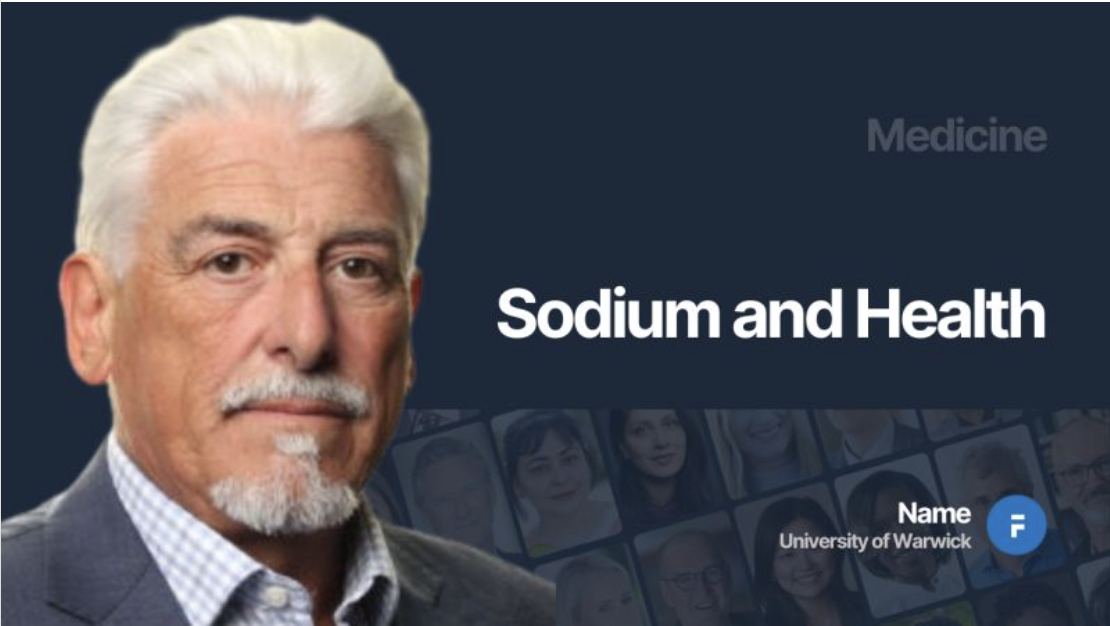
Francesco Cappuccio, Professor of Cardiovascular Medicine & Epidemiology at the University of Warwick Medical School, and Director of the World Health Organization Collaborating Centre for Nutrition, calls upon journals and editors to ensure that unfounded claims about sodium intake be rigorously challenged by independent reviewers before publication; to avoid editorial writers who have been co-authors with the subject paper's authors; to require truthful statements of conflicts of interest; to ensure that their pages are used only by those who seek to advance knowledge by engaging in the scientific method and its collegiate pursuit. He explains the problem in an interview to Faculti (https://faculti.net/sodium-and-health-old-myths/). March 27, 2024.
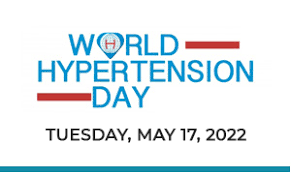
Consensus statement by
the World Hypertension League, Resolve To Save Lives and the International Society of Hypertension
Dietary sodium (salt) global call to action
Today the Journal of Human Hypertension publishes a comprehensive fact sheet and global call to action aimed at nutrition, hypertension, cardiovascular and other health care clinicians and scientists, and health advocates, as well as organizations to which they belong. The World Hypertension League, Resolve to Save Lives and the International Society of Hypertension fact sheet and global call to action on reducing dietary sodium (salt) is supported by 70 national and international health and scientific organizations 1. As such the Fact Sheet and Global Call represent the position of mainstream scientific and health care organizations.
The global call to action outlines:
- the burden of disease caused by high dietary sodium,
- scientific evidence supporting recommendations to reduce dietary sodium,
- dietary recommendations to reduce dietary sodium,
- estimated levels of sodium intake,
- cost effectiveness of programs to reduce dietary sodium,
- sources of controversy,
- Interventions to reduce dietary sodium and
- Updated resources on the adverse health effects of high dietary sodium and interventions to reduce dietary sodium.
The call encourages all health care professionals, scientists, and the organizations that represent them to advocate for sodium reduction to be a high global priority and for all nations to develop effective programs to reduce sodium intake to recommended levels. Organizations can review the Global Call to Action and indicate their support for the Call by contacting the World Hypertension League at whleague17@gmail.com. An updated list of supporting organizations will be maintained until 2025. The Call to Action can be rapidly accessed at https://rdcu.be/cNIMn.
- Campbell NRC, Whelton PK, Orias M, al. e. 2022 World Hypertension League, Resolve To Save Lives and International Society of Hypertension Dietary Sodium (Salt) Global Call To Action. J Hum Hypertens. 2022; https://doi.org/10.1038/s41371-022-00690-0.
Read a Short Summary here
Read the Open Access Full Report here.
HOT OFF THE PRESS - March 2022
An International Call for Action:
Flawed research undermining dietary salt guidelines that protect cardiovascular health
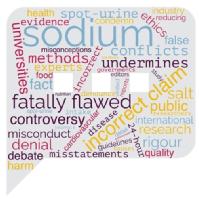
“The question of contagion in various diseases has often been discussed with a degree of acrimony that is unusual in medical or other scientific enquiries. […] It is the great pecuniary interests involved …” John Snow, 1853.
Professor Francesco Cappuccio highlights in the World Hypertension League Newsletter the content of a report published by 25 leading experts in nutrition and CVD prevention who denounce the incorrect claim that a moderate reduction in sodium (salt) consumption is harmful. The report explains why the claim is based on flawed methods, poor rigour in research methodology and bias.
Read the Open Access Report here.
SALT AWARENESS WEEK 2022
ROUND TABLE: ACCELERATING SALT REDUCTION IN THE UK
FREE REGISTRATION
Background: Salt reduction is internationally recognised as a powerful and cost-effective prevention policy. The UK’s salt reduction programme has formed the model for international momentum; to date, 57 countries have salt targets, including 19 sets of mandated targets. New evidence from South Africa shows their mandated salt targets have led to a 1.2g/day drop in population salt intake since 2016.
The policy landscape has been dominated by obesity as opposed to cardiovascular prevention for several years, and key prevention policies due to come into place in 2022, including further advertising restrictions and price/location promotion restrictions, have focused on sugar and calorie reduction at the expense of salt. In light of the ever-increasing body of evidence implicating salt in cardiovascular disease, the World Health Organization have released Global Sodium Benchmarks to accelerate progress, which in many cases are more ambitious than the UK targets.
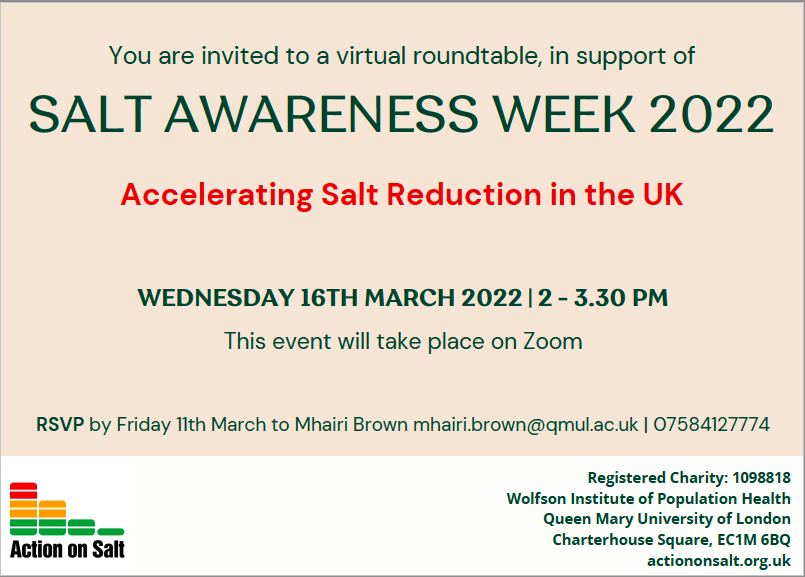
Participants in this roundtable will be asked to draw from their diverse experiences in public health and prevention to identify common ground on the need for salt reduction in the UK and highlight barriers and opportunities to achieving progress in salt reduction.
Purpose: To create consensus that salt reduction progress is needed to prevent cardiovascular disease, responsible for one in four deaths in the UK, and identify how to accelerate progress.
Preparation: Please consider the following questions for discussion at the roundtable:
- What are the strengths and weaknesses of the current salt reduction programme? Think in terms of progress made, resources required, stakeholders involved
- What are the main barriers to progress?
- What are the immediate steps and shifts necessary to address the challenges? Think of UK and international experience
- How can we work together to improve the programme?
Agenda:
- Welcome and ground rules (10 mins)
- Introductions (10 mins)
- Discussion and feedback (60 mins)
- Concluding remarks and close (10 mins)
US and British health specialists support the NHS
The Guardian | Letter | Sun 3 May 2015 21.08 BST
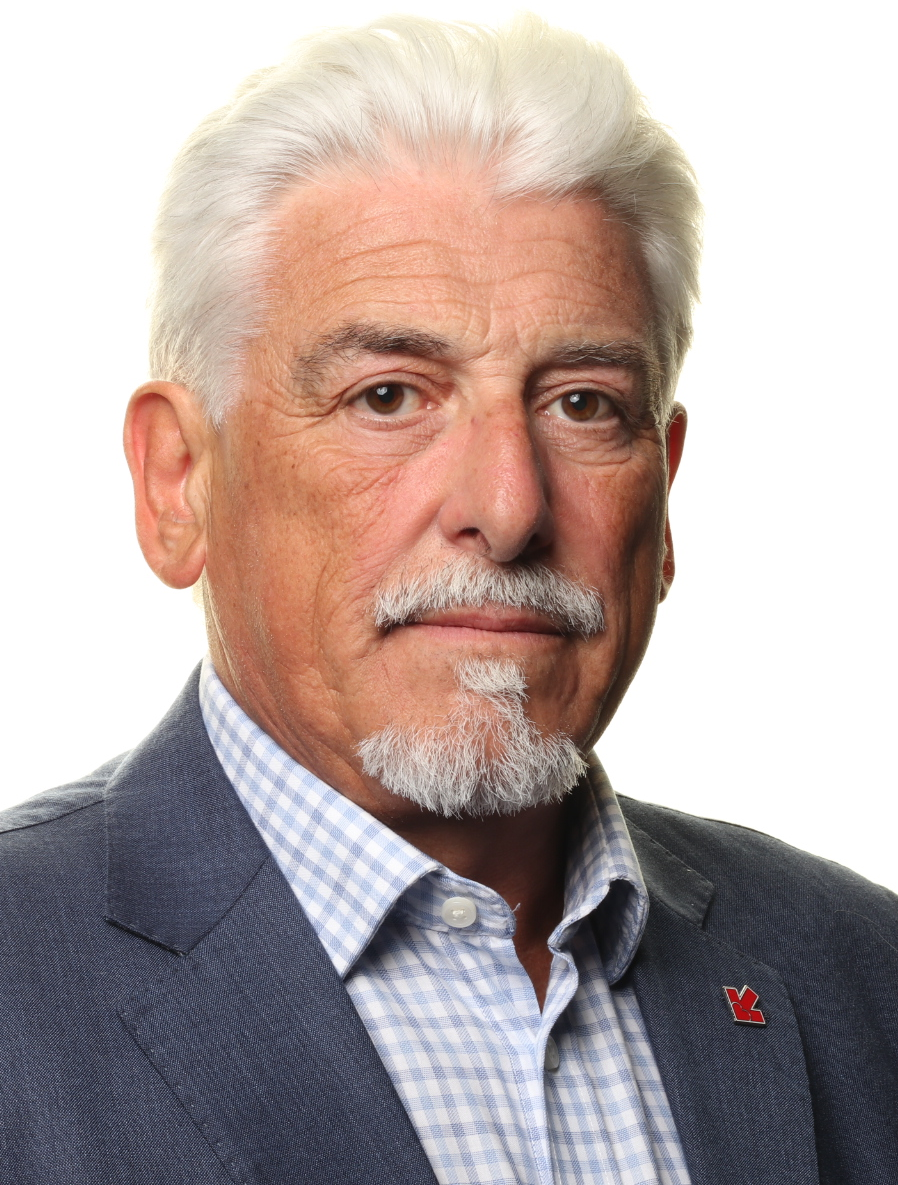
Useful Links
- Cardiovascular Health
- Sleep Research
- Publications (2011-2026)
- Publications (1998-2010)
- Publications (1983-1997)
- Official Lectures
- PhD/MSc Projects
- Podcasts & Recordings
- Press releases
- Research impact
- Medical blog
- WMS 25: personal reflections
- Meetings
- INSPIRE Academic Programme
- Linkedin Posts
LATEST NEWS
- A series of articles and commentaries published in the last couple of years should put an end to the use of spot urine analyses as a research tool for measuring salt intake in individuals and populations. Read these selected articles (05/04/2023)
- Experts condemn the flawed North American-based claim that reducing salt intake causes harm. They call on stakeholders to act. Read Press release and Article (14/02/2022)
-
Research Shows That Plant-Based Diets Lower Blood Pressure. Jordan Davidson talks to Prof Cappuccio about his latest research. Everyday Health (10/08/2020)
- Salt: it's more dangerous than you think. We eat far too much of it - and it's taking a toll on our health. Jennie Agg asks the experts how we can cut back The Times (19/05/2020)
- BBC One: Food - Truth or Scare. Paralympian Danny Crates gets to the bottom of controversial reports suggesting that rather than eat less salt, we should be eating more. Prof Cappuccio is interviewed (06/02/2017)
- The Average Human Project
- Eating too little salt may increase your risk of a heart attack or stroke, claims controversial new research. Daily Mail (20/05/2016)
- Lancet attacked for publishing study claiming low-salt diet could kill you. The Independent (20/05/2016)
- The salt debate: does consuming less really save lives? Prof. Cappuccio in The Conversation and in The Independent (03/03/2016)
- What about the studies that show a “u-shaped curve,” where too much sodium is bad, but too little may be bad too? (Feb 2016)
- Prof. Cappuccio is included in the first 100 Top Italian Scientists listed by the VIA (Virtual Italian Academy)(Dec 2015)
- Prof. Cappuccio elected Vice-President of the British Hypertension Society (Sept 2015)
- Salt: are you eating too much? Channel 4 Dispatches (29/06/2015)
Sleep and Health News
- People with high blood pressure who take their medication in time with their body clock could reduce the risk of a heart attack.
- Published in eClinMed.
- Reported widely:
- BBC Scotland (at 42:00 min) (16/05/2024)
- The Times (16/05/2024)
- Daily Express (16/05/2024)
- The Independent (16/05/2024)
- MSN (16/05/2024)
- Newsweek (21/05/2024)
- Gazzetta dello Sport (03/06/2024)
- Medscape (12/06/2024)
-
LIGHT UP YOUR LIFE: You aren’t imagining it, the summer washout could be impacting your mood, here’s why. (27/06/2023) - PODCAST
- Chi non dorme fa un azzardo. E il cuore paga. La Repubblica (10/09/2019)
- Lack of sleep leads to obesity in children - Press release - Newsweek (18/04/2018)
- The Truth about Slim People - Channel 4 (08/11/2017)

- The Truth about Slim People (Daily Mail)(03/11/2017)
- Dealing with insomnia
BBC Radio 4: Woman's Hour (05/05/2016)
- Sleeping late? Napping a lot?
CNN (04/09/2015)
KSL.com (04/09/2015)
- Report from ESC in London
Mail Online (31/08/2015)
BBC News(24/03/2015)
BBC World Service (21/02/2015)
- FREE Public Engagement Seminar: Sleep and Cognition in the life-course: from development to decline (27/06/2014)
- Little or poor sleep may be associated with worse brain function when aging (26/06/2014)
- http://news.bbc.co.uk/1/hi/health/7858921.stm (30/01/09)
- guardian.co.uk/society/2008/dec/30/junior-doctors-working-hours-bma (30/12/2008)
- sleep.med.harvard.edu/news/
- Safety and the flying doctor (25/01/2008)
Diet and Health News
- Is the sodium debate a legitimate scientific disagreement or a “controversy” manufactured by industry? (Oct 2015)
- Call for government to curb the production and sale of cheap salty junk food (11/09/2015)
- WHO Advisor warns against production and sale of cheap salty snacks (11/09/2015)
- Dietary sodium content, mortality and risk for cardiovascular events in older adults (19/01/2015)
- "Old issues, new promises" - Professor Francesco Cappuccio responds to plans to limit fat, salt and sugar in children's food (16/01/2015)
- Social inequalities in salt consumption remain despite national drop in salt intake over last 10 years (27/08/2014)
- There’s no debate: lowering salt cuts strokes and heart attacks, read more in The Conversation (15/04/2014)
- Sale: stop all'abuso, read more in La Repubblica (12/11/2013)
- Italian Ministry of Health Symposium on Salt and Health (14/06/2010)
- There's no doubt about the health dangers of salt, read more in the New Scientist (01/05/2010)
- Salt and Cardiovascular Disease (28/04/2007)
- Salt as a vehicle for fortification (2008)
- Reducing salt intake in populations (2007)







